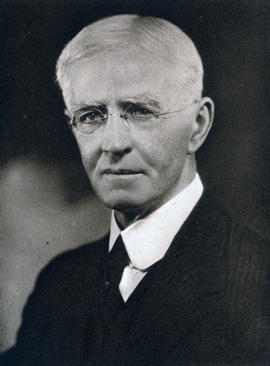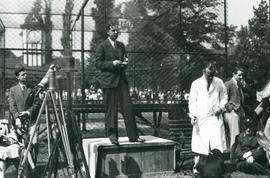Neave was a British naturalist and entomologist. He was the grandson of Sheffield Neave, a governor of the Bank of England and the father of Airey Neave. He was born in Kensworth, Hertfordshire, the son of Sheffield Henry M. Neave and his wife Gertrude Charlotte Margaret (nee Airey). He was educated at Eton and Magdalen College, Oxford.
Neave's first work was research into the problems related to the tsetse fly and the study of African animal life. He was part of the Geodetic Survey of Northern Rhodesia between 1904 and 1905. Between 1906 and 1908 he was part of the Katanga Sleeping Sickness Commission and then from 1909 to 1913 the Entomological Research Committee of Tropical Africa.
He returned to the United Kingdom in 1913 and was appointed Assistant Director of the Imperial Institute of Entomology, becoming Director from 1942-1946. He was appointed as an officer of the Order of the British Empire in 1933 and a companion of the Order of St. Michael and St. George in 1941. From 1918 until 1933 he was Honorary Secretary of the Royal Entomological Society and was then its President in 1934-1935.
In 1934 he had the idea to compile an updated index of all published generic and subgeneric names in zoology, an activity which occupied the period 1935-1939, and resulted in the publication of his (initially) four volume 'Nomenclator Zoologicus' in 1939-1940. He also oversaw the preparation of a fifth volume, published in 1950.
Neave was Secretary of the Zoological Society of London from 1942. He retired in 1946 but carried on as Honorary Secretary until 1952.
Naeve married twice, firstly to Dorothy Middleton and they had two sons and three daughters, the eldest was Airey Neave, later a Member of Parliament. Dorothy died in 1942 and Neave married a second time to Mary Hodges in London in 1946.


